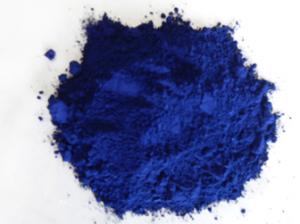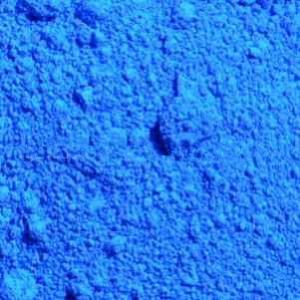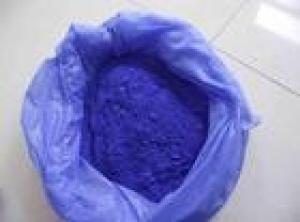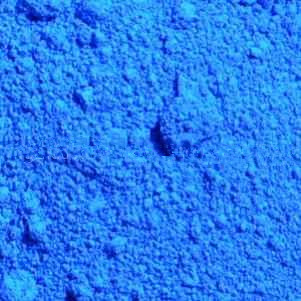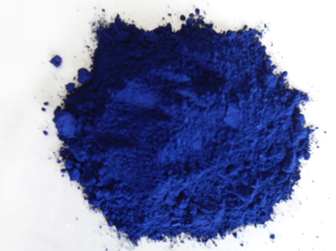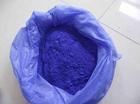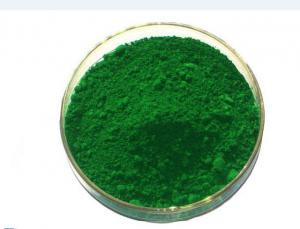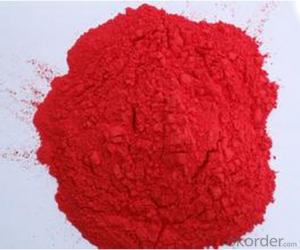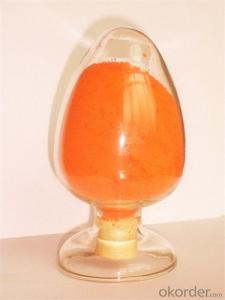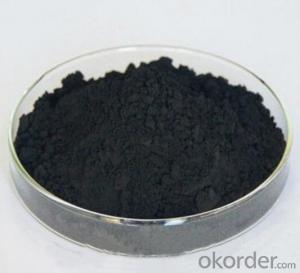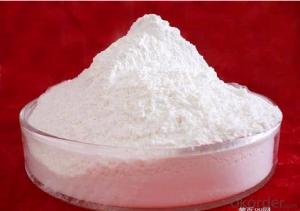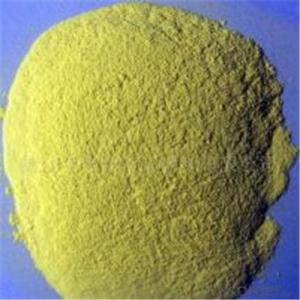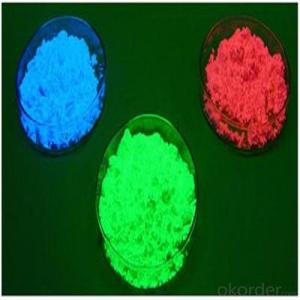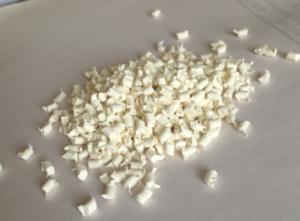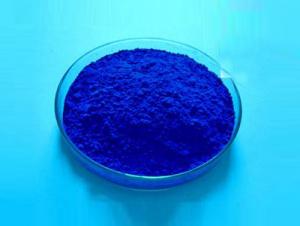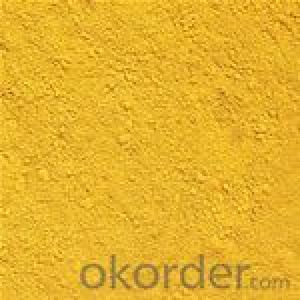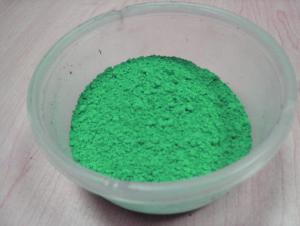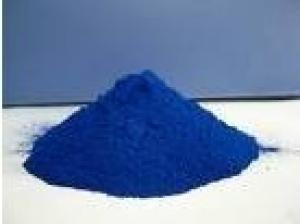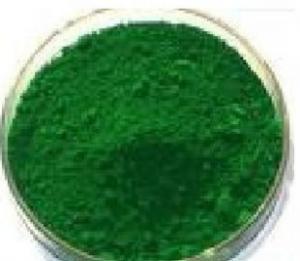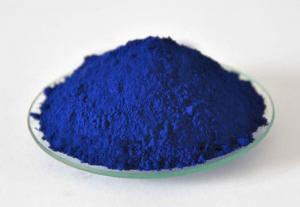Ultramarine Blue 462
- Loading Port:
- Tianjin Port
- Payment Terms:
- TT or LC
- Min Order Qty:
- 1 Metric Ton m.t.
- Supply Capability:
- 8000MT Per Year m.t./month
OKorder Service Pledge
OKorder Financial Service
You Might Also Like
Production Details Of Ultramarine Blue 462:
Edition | 2012-07-29 | ||
Product type | Blue Pigment | ||
Product Form | Power | ||
Chemotaxonomy | Na6Al4Si6S4O20 | ||
Color Index | Color Blue 29:77007 | ||
CAS No. | 57455-37-5 | ||
Color Value&Tint Strength Refer Standard:DIN 55986 (1981) Use 1:2 Tio2 dilution and tinting strength parameter matching color value | |||
MIN | MAX | ||
△L* | -0.7 | 0.7 | |
△a* | -0.7 | 0.7 | |
△b* | -0.7 | 0.7 | |
△E*ab | 1.0 | ||
Relative tinting strength % | 95 | 105 | |
TDS Of Ultramarine Blue 462 :
MIN | MAX | TEST METHOD | |
Water solubles [%] | 1.5 | DIN EN ISO787 Part 3 (1995) | |
Residue on sieve(0.045mm)[%] | 0.5 | DIN 53195 (1990) | |
PH Value | 7.5 | 10 | DIN EN ISO787 Part 9 (1995) |
S [%] | 0.3 | DIN 55913 (1972) | |
105℃ volatile matter [%] | 1.0 | DIN ENISO 787 Part 2 (1995) | |
Oil absorption [g/100g] | 25.0 | 45.0 | DIN EN ISO787 Part 5 (1995) |
Package Of Ultramarine Blue 462 :
25 kg / Kraft bag , 20 MT /20 FCL . Or as your requirements .
Suggest Using Of Ultramarine Blue 462 :
Ultramarine Blue, PB(Pigment Blue) , is an inorganic pigments color. It is a sodium alumino-sulphosilicate. This pigment is the synthetic form of Lazurite. Compared with other blue pigment or dyes,
ultramarine blue has the advantages of clean and bright reddish blue shade.
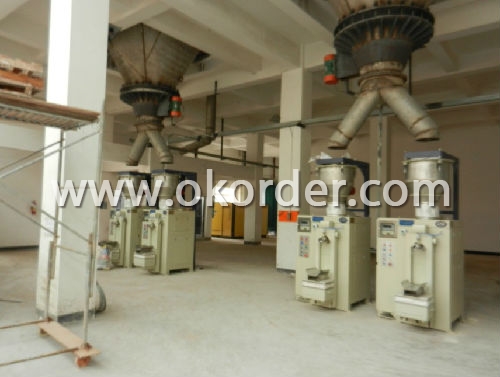
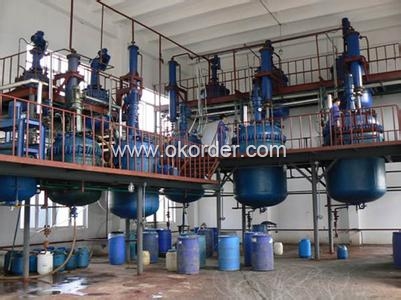
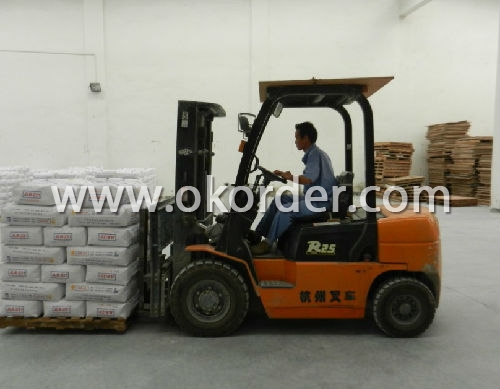
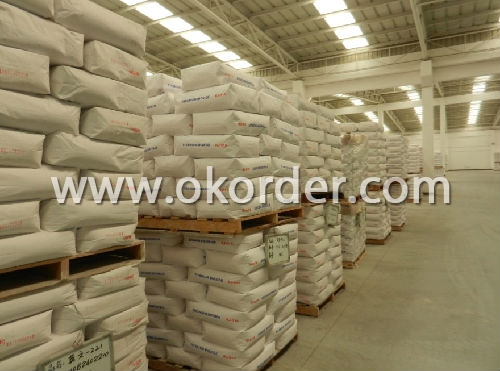
- Q: I need to find powdered paint or pigment that I can throw, for some photographs.Preferably cheap, and that wouldn't stain skin.I've looked into powder paint, though this tends to stain skin for about a week.Thanks :)
- Smash up sidewalk chalk.
- Q: What does the word pigment mean?
- it means the color. like the pigment of your eyes could be green, blue, hazel. or the pigment of your skin. it's a fancy-pants word for color.
- Q: How do you use pigments?
- technically, pigment is a coloured mineral of a few type it relatively is floor as fantastic as available. (i.e., cobalt is blue, iron produces reds, etc.) Pigment is a similar whether it fairly is in cosmetics, ceramics, or in paint. in spite of the undeniable fact that, cutting-ingredient chemical ingredients can even have the end results of coloring the ingredients of cosmetics, yet that would lead them to a colorant, no longer a pigment.
- Q: hi:]i need the right order to apply skin pigments...
- Pigments are usually packaged in a finely milled loose powder form. After cleansing , toning and moisturizing,let the moisturizer absorb in the skin. Apply the skin pigments using a large compact powder brush/kabuki brush in a circular motion on face neck, then apply a second layer in a downward motion. Then use Evian water Mister to set the pigment. For eye pigments, put a thin layer of skin pigment first, then apply the eye pigment using a oval shaped dome brush
- Q: I need to know the classes and sub classes of pigments classification
- INORGANIC PIGMENTS Oxides Chromates Sulphides Sulphoselenides Sulphates Silicates Ferrocyandies Carbonates Metallic Mixed Metal Oxides Vanadates ORGANIC PIGMENTS Organic pigments are generally categorized into six types : ?Monoazo Pigments ?Diazo Pigments ?Acid and base dye Pigments ?Phthalocyanine Pigments ?Quinacridone Pigments ?Other polycyclic Pigments if you want more detail: ORGANIC PIGMENTS: 1.AZO Pigments : Monoazo Yellow and Orange Pigments. Disazo Pigments. β-Naphthol Pigments. Naphthol AS Pigments (Naphthol Reds). Azo Pigment Lakes (Salt Type Pigments). Benzimidazolone Pigments. Disazo Condensation Pigments. Metal Complex Pigments. 2.POLYCYCLIC Pigments: Phthalocyanine Pigments. Quinacridone Pigments. Perylene and Perinone Pigments. Diketopyrrolo–Pyrrole (DPP) Pigments. Thioindigo Pigments. Isoindolinone and Isoindoline Pigments. 3. Anthraquinone Pigments. Anthrapyrimidine Pigments. Flavanthrone Pigments. Pyranthrone Pigments. Anthanthrone Pigments. 4. Dioxazine Pigments. Triarylcarbonium Pigments. Quinophthalone Pigments
- Q: I have dyed my hair dark brown for months now it keeps fading because i've had bleach on before hand, so I need some advice on buying decent hair dyes for pre-pigmenting it so my hair dye stops fading out into a horrible gingery brown!
- once you coloration your hair from blonde back to brown, you will possibly be able to desire to place the 'coloration' back into the hair as while that's bleached, that's stripped of coloration. hence you will possibly be able to desire to place the purple back into your hair. attempt making use of a mahogony coloration which has purple in it. this might forestall that green hue interior the hair. keep in mind, purple fades quicker than the different coloration so as quickly as the purple interior the colour starts to vanish seem boring, you are able to then use a typical brown in case you desire, or shop fresh while needed with the purple/brown. desire this enables.
- Q: what is the difference between light color and pigment colors?
- Check out the links below. They should answer any question about the properties of light. In a nutshell, the color of light is an electromagnetic radiation.that the human eye sees. The rainbow is a visual phenomenon that shows the transmission of those radiant colors. We see them all.. ,orange, yellow, green blue, indigo, violet at one time because they are being filtered through the moisture in the air. Of them all, only the primary colors are true colors.. , green and blue. The others are where the light blends together. Pigments are artificially produced things that bend light in such a way that we see a different color. A pigment reflects the available light, changes it because of its absorption property. Thats why black is both a color and the absence of color. In light, black is the combination of all colors (black absorbs all radiant light) and in pigment the absence of any color.
- Q: I was intrested in buying some pigments on ebay but they dont say the name they just say these nubers #68 #69 #93 do u no what pigment name they are u could serch it that might help thank you
- All mac pigments have a specific name and i had researched a bit and seen videos of people comparing the fake to the authentic pigments. I've seen fakes with a no. on it. Stay away from this seller and i strongly suggest buy it from a MAC store as most brushes, pigments, eyeshadows are fake on Ebay.
- Q: How are plant pigments involved in photosynthesis?
- Plant pigments - as other pigments - interact with light to absorb only certain wavelengths. In plants the different sorts of pigments are useful to absorb available wavelengths of light and enable photosynthesis in shadow, in bright sunshine, in deep sea etc.: each pigment reacts with only a narrow range of the spectrum, there is usually a need to produce several kinds of pigments, each of a different color, to capture as much as possible of the sun's energy.
1. Manufacturer Overview
| Location | Hunan, China |
| Year Established | 1998 |
| Annual Output Value | Above US$ 30 Million |
| Main Markets | 20.00% North America 15.00% South America 15.00% Eastern Europe 10.00% Southeast Asia 10.00% Northern Europe 10.00% South Asia 10.00% Western Europe 5.00% Africa 5.00% Mid East |
| Company Certifications | ISO9001:2000; |
2. Manufacturer Certificates
| a) Certification Name | |
| Range | |
| Reference | |
| Validity Period |
3. Manufacturer Capability
| a) Trade Capacity | |
| Nearest Port | Shanghai Port |
| Export Percentage | 41% - 50% |
| No.of Employees in Trade Department | 6-10 People |
| Language Spoken: | English; Chinese; |
| b) Factory Information | |
| Factory Size: | Above 10,000 square meters |
| No. of Production Lines | Above 10 |
| Contract Manufacturing | Design Service Offered; Buyer Label Offered |
| Product Price Range | High; Average |
Send your message to us
Ultramarine Blue 462
- Loading Port:
- Tianjin Port
- Payment Terms:
- TT or LC
- Min Order Qty:
- 1 Metric Ton m.t.
- Supply Capability:
- 8000MT Per Year m.t./month
OKorder Service Pledge
OKorder Financial Service
Similar products
Hot products
Hot Searches
Related keywords
